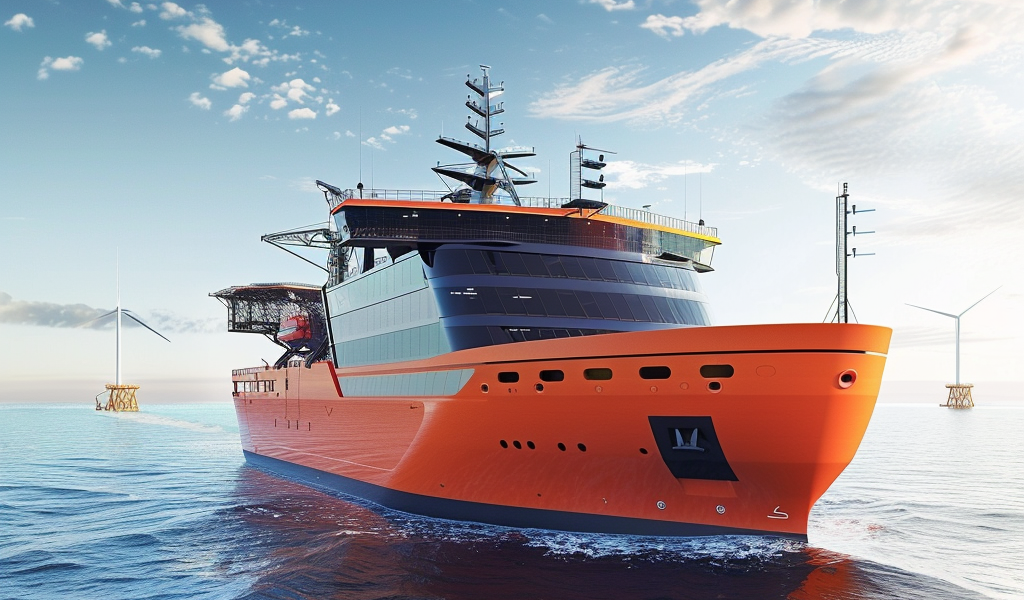Eidesvik Offshore Pioneers Ammonia-Powered Shipping with Groundbreaking PSV Conversion
Norwegian shipowner Eidesvik Offshore is set to make maritime history by converting its platform supply vessel (PSV), the Viking Energy, into the world’s first ammonia-powered vessel. This innovative project features a dual-fuel engine developed by Wärtsilä, marking a significant milestone in the shipping industry’s quest for sustainable fuel solutions.
The conversion of the Viking Energy will involve the installation of a Wärtsilä 25 Ammonia engine along with a complete gas supply system. The ambitious initiative has received €5 million in funding from the European Union through the Apollo Project, underscoring the project’s importance in advancing green shipping technologies.
As part of its operational commitments, the Viking Energy will demonstrate ammonia’s viability as a marine fuel while working under contract with Equinor, a leading Norwegian energy company. Gitte Gard Talmo, CEO & President of Eidesvik Offshore, expressed her enthusiasm for the project, stating, “Apollo represents an important step in our journey towards carbon-free shipping operations. Eidesvik has a unique history as a pioneer in showcasing new technologies to curb emissions, and we take pride in once again assuming this role alongside Equinor.”
A recent report from Wärtsilä highlights that while existing decarbonization solutions, such as fuel efficiency measures, can reduce shipping emissions by up to 27%, sustainable fuels like ammonia could eliminate the remaining 73%. This underscores the critical need for the maritime industry to embrace alternative fuels in its efforts to achieve net-zero emissions.
Håkan Agnevall, President and CEO of Wärtsilä, emphasized the urgency of the situation, stating, “In just 25 years – the lifetime of a single vessel – shipping needs to get to net zero emissions. Achieving this will require coordinated action by all maritime industry stakeholders to bring about the system change needed to accept a new generation of sustainable fuels.”
The Apollo Project aims to create modular designs that will facilitate the rapid adoption of ammonia engines for both new ships and retrofits. VTT Technical Research Centre of Finland will leverage insights from the project, while Breeze Ship Design will provide ship design services tailored to accommodate this innovative propulsion system. This design adaptability is intended to enable vessel owners to incorporate the Apollo solution into their decision-making processes as early as 2027.
Leading the EU project is Norwegian Maritime CleanTech, with CEO Ada M. Jakobsen highlighting the project’s potential impact on climate goals. She stated, “This will be a real game-changer when it comes to meeting the climate goals for 2030, as it can be adapted to virtually all types of vessels, both on the Norwegian shelf and internationally. The concept’s market potential is huge.”
In addition to developing ammonia-powered vessels, the project partners will also assess the existing supply chain for green ammonia in Europe. This includes evaluating the necessary bunkering infrastructure to support both marine and inland vessels utilizing ammonia as a fuel source.
The drive towards ammonia dual-fuel propulsion is expected to result in several vessels being operational by 2026 across various global locations. However, the initiative does not come without challenges. Concerns regarding the safety of ammonia, particularly its high toxicity, have been raised. A recent conference held by the Nautical Institute in Singapore brought attention to the potential risks associated with major incidents involving ammonia, whether as a fuel or otherwise.
As Eidesvik Offshore embarks on this groundbreaking journey, the maritime industry watches closely, eager to see how ammonia-powered vessels can reshape the future of shipping and contribute to global decarbonization efforts.





